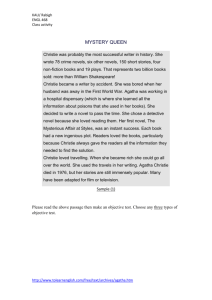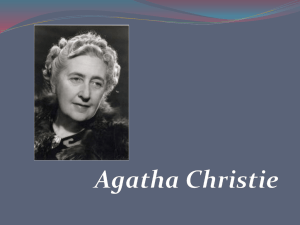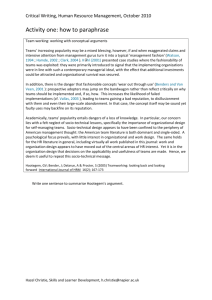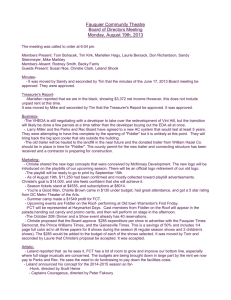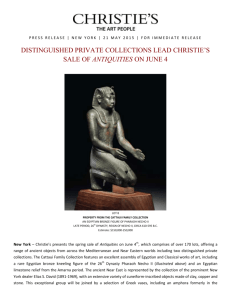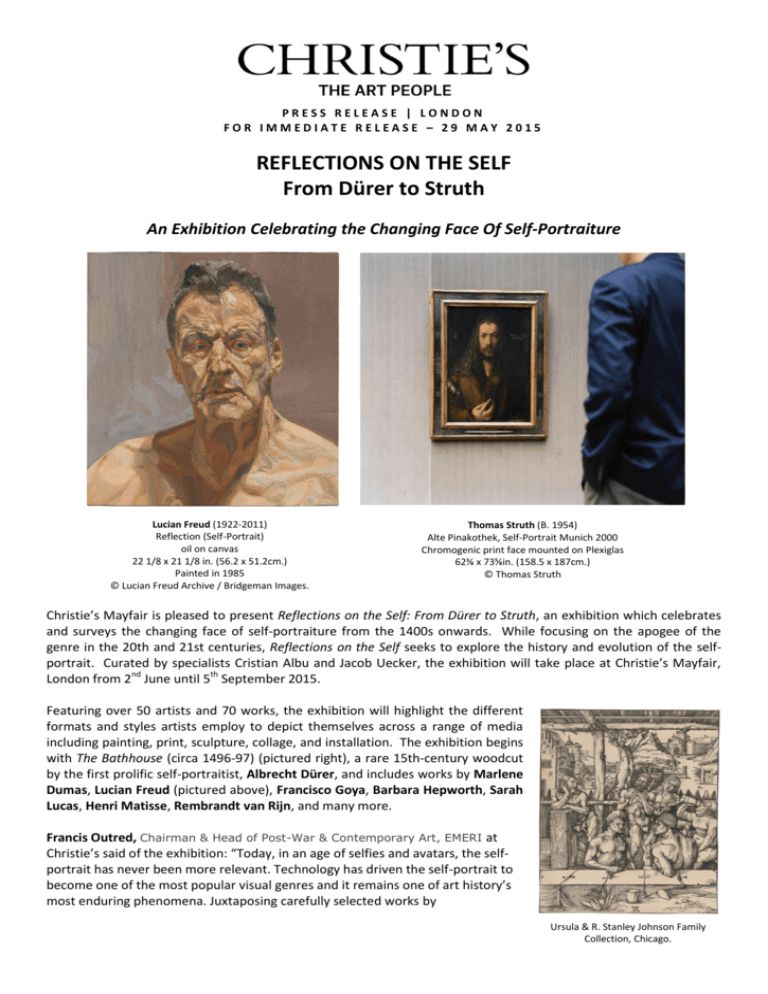
PRESS RELEASE | LONDON
FOR IMMEDIATE RELEASE – 29 MAY 2015
REFLECTIONS ON THE SELF
From Dürer to Struth
An Exhibition Celebrating the Changing Face Of Self-Portraiture
Lucian Freud (1922-2011)
Reflection (Self-Portrait)
oil on canvas
22 1/8 x 21 1/8 in. (56.2 x 51.2cm.)
Painted in 1985
© Lucian Freud Archive / Bridgeman Images.
Thomas Struth (B. 1954)
Alte Pinakothek, Self-Portrait Munich 2000
Chromogenic print face mounted on Plexiglas
62⅜ x 73⅝in. (158.5 x 187cm.)
© Thomas Struth
Christie’s Mayfair is pleased to present Reflections on the Self: From Dürer to Struth, an exhibition which celebrates
and surveys the changing face of self-portraiture from the 1400s onwards. While focusing on the apogee of the
genre in the 20th and 21st centuries, Reflections on the Self seeks to explore the history and evolution of the selfportrait. Curated by specialists Cristian Albu and Jacob Uecker, the exhibition will take place at Christie’s Mayfair,
London from 2nd June until 5th September 2015.
Featuring over 50 artists and 70 works, the exhibition will highlight the different
formats and styles artists employ to depict themselves across a range of media
including painting, print, sculpture, collage, and installation. The exhibition begins
with The Bathhouse (circa 1496-97) (pictured right), a rare 15th-century woodcut
by the first prolific self-portraitist, Albrecht Dürer, and includes works by Marlene
Dumas, Lucian Freud (pictured above), Francisco Goya, Barbara Hepworth, Sarah
Lucas, Henri Matisse, Rembrandt van Rijn, and many more.
Francis Outred, Chairman & Head of Post-War & Contemporary Art, EMERI at
Christie’s said of the exhibition: “Today, in an age of selfies and avatars, the selfportrait has never been more relevant. Technology has driven the self-portrait to
become one of the most popular visual genres and it remains one of art history’s
most enduring phenomena. Juxtaposing carefully selected works by
Ursula & R. Stanley Johnson Family
Collection, Chicago.
artists that have championed this art form in wildly varied ways, the exhibition seeks to expand the parameters of
the genre beyond the traditional idea of a window into the artist’s soul.”
As a cultural symbol, self-portraiture is a visual genre that captures both an intimate existential moment and the
intellectual and cultural climate of its time. Born out of the natural curiosity for the individual, each work puts in play
a tension between an act of great personal scrutiny and the artistic, social, technological and political context of its
era.
Seen in Lucian Freud’s series of brutally honest self-portraits which begin with a painting of the young artist in SelfPortrait 1949, and progresses through the decades including Self-Portrait with a black eye, 1969, Reflection (SelfPortrait), 1985 and Self-Portrait: Reflection, 1996 when the artist was in his 70s, the development of the artist’s skill
and self-awareness can be discovered in the diary-like intimacy shared by the painter. Known for his supposedly
objective image of people and his belief in “paint[ing] what I see, not what you want me to see”, his psychologically
penetrating works capture the inherent power of the self-portrait.
The works assembled will not only chronicle the
likenesses, revelations and confessions of the
tradition’s most important exponents, but also create
unexpected encounters between these depictions of
self. Andy Warhol’s detached, mass-produced 1960s
self-portraits will provide a point of contrast to Francis
Bacon’s twisted, tormented Three Studies for Portraits
(including Self-Portrait), 1969 (pictured right).
© The Estate of Francis Bacon. All rights reserved, DACS 2015.
Alongside the more traditional self-portrait media of painting and
photography, including Sarah Lucas’s confrontational Self Portrait with
Skull and Robert Mapplethorpe’s reflection on lost youth Self Portrait,
there will be three-dimensional representations of the self, including a
rendered bronze sculpture of the hand of Dame Barbara Hepworth,
The Artist’s Hand (1967), Joseph Beuys’ Felt Suit (1970), and
culminating with prankster Maurizio Cattelan’s WE (2010) (left).
© Maurizio Cattelan.
Courtesy Marian Goodman Gallery, New York.
© 2010 Hester + Hardaway. Photo : Paul Hester.
The exhibition will be accompanied by a catalogue featuring essays by
author James Hall on the history of self-portraiture and Francis Bacon
scholar Michael Peppiatt.
Reflections on the Self is the sixth exhibition to be presented at Christie’s Mayfair, following on from the celebrated
exhibitions When Britain Went Pop, Turn Me On: European and Latin American Kinetic Art 1948-1979, Richter/Polke
Polke/Richter, The Bad Shepherd, and a joint exhibition which explored the progression and flow of time – Roman
Opalka: The End is Defined and Darren Almond: Present Form.
Exhibition: Reflections on the Self
Christie’s Mayfair, 103 New Bond Street, London, W1S 1ST
2 June – 5 September 2015
www.christies.com
PRESS CONTACTS:
Belinda Bowring | 0207 389 2677| bbowring@christies.com
John Diviney │ 020 7936 1290 │ christies2@brunswickgroup.com
Images Available on Request
List of Exhibiting Artists
Billy Apple (B. 1935)
Keith Arnatt (1930 – 2008)
Frank Auerbach (B. 1931)
Francis Bacon (1909 – 1992)
Jean-Michel Basquiat (1960 – 1988)
Max Beckmann (1884-1950)
Joseph Beuys (1921-1986)
Maurizio Cattelan (B. 1960)
Paul Cézanne (1839 – 1906)
Marc Chagall (1887-1985)
Chuck Close (b. 1940)
Jean Dubuffet (1901-1985)
Marcel Duchamp (1887-1968)
Marlene Dumas (B. 1953)
Albrecht Dürer (1471-1528)
James Ensor (1860-1949)
Valie Export (B. 1940)
Lucian Freud (1922-2011)
Claude Gilli (B. 1938)
Francisco de Goya y Lucientes (1746-1868)
Richard Hamilton (1922-2011)
David Hammons (B. 1943)
Erich Heckel (1883-1970)
Dame Barbara Hepworth (1903-1975)
David Hockney (B. 1937)
Martin Kippenberger (1953 – 1997)
Leon Kossoff (B. 1926)
Michael Landy (B. 1963)
Maria Lassnig (1919-2014)
Jean Etienne Liotard (1702 – 1789)
Laurence Stephen Lowry (1887 – 1976)
Sarah Lucas (B. 1962)
Robert Mapplethorpe (1946-1989)
Henri Matisse (1869-1954)
Steve McQueen (b. 1969)
Duane Michals (B. 1932)
Henry Moore, O.M., C.H. (1898-1986)
Edvard Munch (1863-1944)
Helmut Newton (1920 – 2004)
Albert Oehlen (b. 1954)
Roman Opalka (1931- 2011)
Michelangelo Pistoletto (b. 1933)
Rembrandt Harmensz. van Rijn (1606–1669)
Gerhard Richter (B. 1932)
Jenny Saville (B. 1970)
Cindy Sherman (B. 1954)
Rudolf Stingel (B. 1956)
Thomas Struth (B. 1954)
Andy Warhol (1928-1987)
Gillian Wearing (B. 1963)
Francesca Woodman (1958-1981)
Francis Outred, Chairman and Head of Post-War and Contemporary Art, EMERI
In July 2014, Francis became Chairman and Head of the department in EMERI, following a period of unprecedented development, growth and success.
He joined Christie’s from another renowned international auction house in January 2009 to oversee the management, strategy and vision of the PostWar and Contemporary Art team in Europe. During his 15-year career, Francis has overseen the five highest grossing auctions ever to take place in
Europe. He has significantly expanded the remit of private sales in the business, both with major private transactions of masterpieces and with a
pioneering exhibition programme, including ‘House of Cards’ at Waddesdon and most recently the launch of Christies Mayfair, to critical acclaim.
Cristian Albu, Associate Director, Specialist, Post-War and Contemporary Art
Cristian is Co-Head of Day Sale in the Post-War & Contemporary Department at Christie’s. He graduated with a First Class Degree from Low Danube
University with a BA in International Economic Relations. He went on to complete his Master’s degree in Art Business at the Sotheby’s Institute where
he wrote his dissertation on Eastern European Modern and Contemporary Art. Cristian worked for three years for a renowned Art Advisory in London.
Jacob Uecker, Associate Specialist, Post-War and Contemporary Art
Jacob is an associate specialist in the Post-War and Contemporary Art department and is a curator at Christie’s Mayfair. His previous exhibitions
include ‘When Britain Went Pop’, ‘Turn Me On: European and Latin American Kinetic Art 1948-1979’, ‘Richter/Polke Polke/Richter’, ‘The Bad
Shepherd’, ‘Roman Opalka: The End is Defined’ and ‘Darren Almond: Present Form’.
About Christie’s Mayfair
Christie’s Mayfair is the flagship of Christie’s’ global exhibitions programme, the philosophy of which is to look back at history from today’s
perspective and work with colleagues both across the company and the wider art world to create public, museum-quality exhibitions with strong
curatorial values.
About Christie’s
Christie’s, the world's leading art business, had global auction and private sales in 2013 that totalled £4.5 billion/ $7.1 billion, making it the highest
annual total in Christie’s history. Christie’s is a name and place that speaks of extraordinary art, unparalleled service and expertise, as well as
international glamour. Founded in 1766 by James Christie, Christie's has since conducted the greatest and most celebrated auctions through the
centuries providing a showcase for the unique and the beautiful. Christie’s offers around 450 auctions annually in over 80 categories, including all
areas of fine and decorative arts, jewellery, photographs, collectibles and wine. Prices range from $200 to over $100 million. Christie's also has a long
and successful history conducting private sales for its clients in all categories, with emphasis on Post-War & Contemporary, Impressionist & Modern,
Old Masters and Jewellery. Private sales totalled £760.5 million ($1.19 billion) in 2013, an increase of 20% on the previous year.
Christie’s has a global presence with 53 offices in 32 countries and 12 salerooms around the world including in London, New York, Paris, Geneva,
Milan, Amsterdam, Dubai, Zürich, Hong Kong, Shanghai, and Mumbai. More recently, Christie’s has led the market with expanded initiatives in growth
markets such as Russia, China, India and the United Arab Emirates, with successful sales and exhibitions in Beijing, Mumbai and Dubai. *Estimates do
not include buyer’s premium. Sales totals are hammer price plus buyer’s premium and do not reflect costs, financing fees or application of buyer’s or
seller’s credits.

